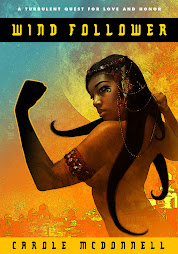His Majesty's Airship: The Life and Tragic Death of
the World's Largest Flying Machine
by S. C. Gwynne
Publisher : Scribner (May 2, 2023)
Language : English
Hardcover : 320 pages
ISBN-10 : 1982168277
ISBN-13 : 978-1982168278
The history of mechanics, especially failed mechanisms,
can be intriguing or exhausting when written by an historian who researches
every nook, cranny, bolt, and screw. His Majesty’s Airship is written by such
an historian. Now, whether it is intriguing or exhausting depends on the mind
of the reader. Some readers might wonder why Gwynne would feel the necessity of
putting all – or nearly all-- his research into the book, while others
(especially those who are fascinated by how great egos, narcissism, obsessions,
imperialism, marketing skills and gullibility work together to create failure will
find the book exhaustive and intriguing.
Through these pages, politicians, governmental
officials, and the general public are depicted as the self-blinded purveyors of
invention. Which, in its humanistic way, challenges the mystique we generally
have about the greatness of invention. The author, though not persistently or
intrusively humorous, shows his personality often. One pictures him shaking his
head here, rolling his eyes there, or holding his head in dismay at how humans –usually
those with a great deal of power, money, patriotism, and marketing skills—could
go about being so self-deceived about a system of machinery for so long that it
could lead to disaster.
The book is primarily a history of airships and national
pride. Throughout its pages we encounter one or another obsessive character who
has a glorious vision, who is great at self-promoting, and who – all evidence
to the contrary-- believes he can attain the impossible. A safe, powerful,
fast-moving airship. But all, all, are either building their vision upon faulty
information, bad and dangerous science, and airy visions. The author’s decision
to interweave the fatal last trip of R101 with backstory is fun and suspenseful
but also somewhat akin to fishing where the reader is lured in and ready to be
caught in the horrible disaster only to have the fisherman-historian loosen the
tension line. This was frustrating in the beginning but after a while, the
reader gets used to this narrative choice and pushes aside the need to see the
devastating flames. It will come when it comes, one thinks, and reads ahead
plunging into the next bit of backstory or side story.
At first, the reader is regaled with the self-regaling
of these inventers—Zeppelin arguably being the worst, because it was upon his
lies that form much of the foundation of all this airship visioning. Then,
after a world wind and exhaustive tour of national imperialism from Germany, France,
the United States, the book focuses on Great Britain and the British
Commonwealth. It is here that we meet some of the major characters who will be the
focus of the disaster of His Majesty’s Airship R101, the world’s largest flying
machine. Lord Thomson, Ernest Johnstone, Captain Irwin, First Officer Atherstone,
Michael Rope, Herbert Scott, and Reginald Colmore. (Princess Marthe hardly
matters except as some distant vision of Thomson’s glory in the same way that
joining the British Commonwealth by air is a distant vision.) The reader looks on at these men with a
combination of pity, anger, commiseration, and exasperation. There’s a bit of “serves-these-privileged
guys right” attitude toward the arrogant (and drunk) who always get their way.
Yet at the same time one’s heart goes out to the sane, good, silenced people
who were on that doomed flight or who had live with the regret of having been
involved in the national delusion/debacle.
The book tells us something new. Certainly most people
have never learned this much about airships. But it also tells us what we
already know: Inventors and great men don’t always know best; they believe
their own lies, they often do great deeds because of envy, unfulfilled desire,
or insecurity. They have power to destroy the lives and careers of those who
are less powerful. They exist in all ages, honing their skill at
self-promotion. Their failures and rare successes change the world.
For better or worse, this book is exhaustively researched.
For better or worse, the author doesn’t tell the story in chronological order.
But for better or worse, it is a great book. Highly recommended.




